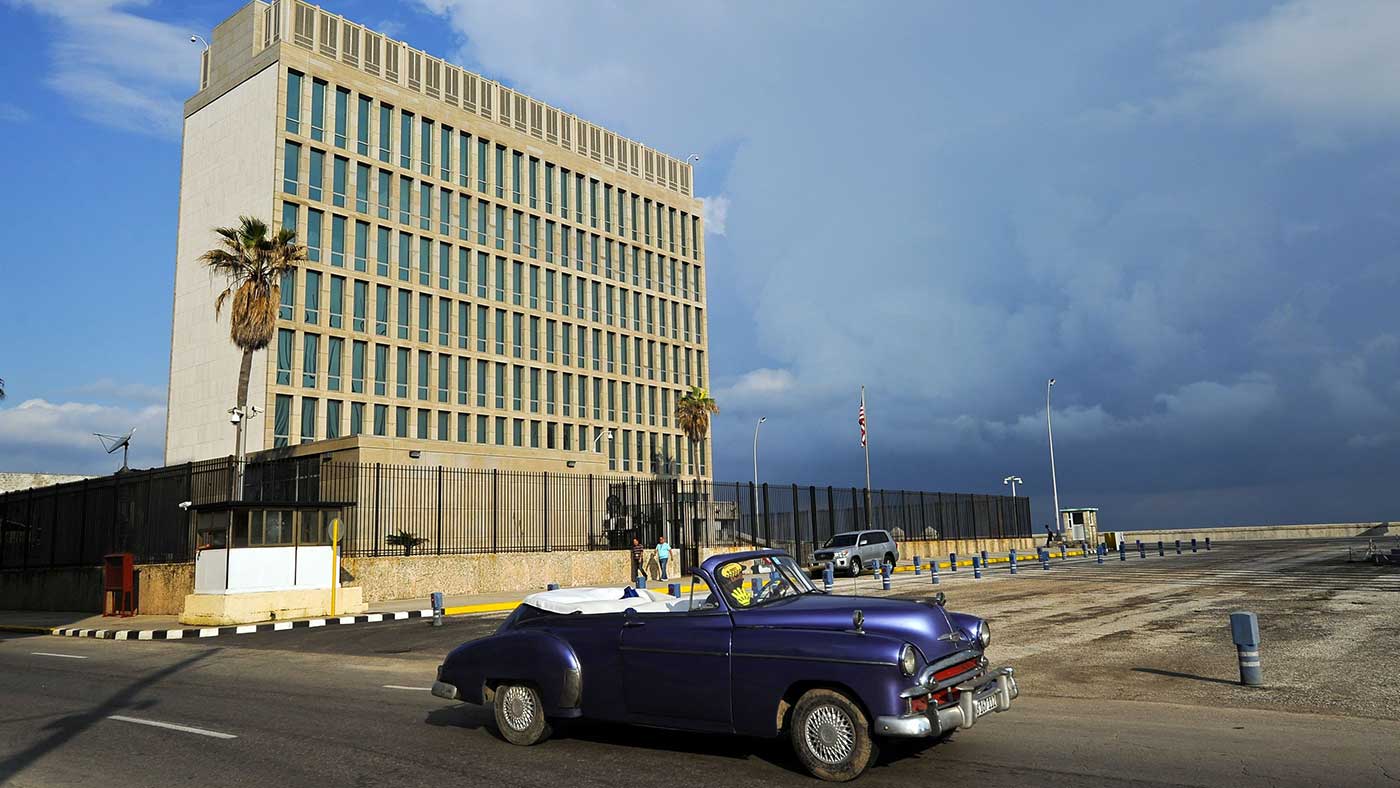Sonic attacks: are spies giving diplomats brain injuries?
Canadian embassy workers in Havana complain of similar unexplained symptoms to US colleagues

A free daily email with the biggest news stories of the day – and the best features from TheWeek.com
You are now subscribed
Your newsletter sign-up was successful
Canadian embassy workers have become the latest foreign diplomats to complain of mysterious ailments while working in Cuba.
Staffers have gone public with their experiences, which began in the spring of 2017, saying that they feel “abandoned” by the government in Ottawa.
A dozen embassy staff – around a third of Canada’s diplomatic presence in Cuba – and their family members say they experienced a range of unexplained medical symptoms, the Globe and Mail reports.
The Week
Escape your echo chamber. Get the facts behind the news, plus analysis from multiple perspectives.

Sign up for The Week's Free Newsletters
From our morning news briefing to a weekly Good News Newsletter, get the best of The Week delivered directly to your inbox.
From our morning news briefing to a weekly Good News Newsletter, get the best of The Week delivered directly to your inbox.
Symptoms included “gushing nosebleeds, ringing in the ears, fits of nausea, dizziness, incapacitating headaches and mental impairment”, and seemed to come on most intensely during the night inside employees’ homes.
Those who have spoken to the press say they fought for months to have their illnesses recognised and to be granted access tests, which would eventually conclude that they had suffered a concussion-style brain injury.
The allegations will reignite interest in the theory that foreign diplomats are being targeted with “sonic attacks”.
At around the same time as the Canadian workers fell ill, several US embassy employees in Cuba reported similar symptoms.
A free daily email with the biggest news stories of the day – and the best features from TheWeek.com
Cuban President Miguel Diaz-Canel has strongly denied that his government is responsible for the unusual outbreak, and US intelligence has identified Russia as the most likely source of the interference.
Nonetheless, diplomats have begun to dub the phenomenon ‘Havana syndrome’.
Cuba is not the only country where diplomats have been struck down so-called “sonic attacks”.
Earlier this year, Jennie Lee, spokeswoman for the US consulate in Guangzhou, China, said that an employee there had complained of “abnormal sensations of sound and pressure” while working at the consulate between late 2017 and April 2018. The staffer was later diagnosed with a “mild traumatic brain injury.
“Washington has been outspoken in speculating that those brain injuries were caused by mysterious energy-weapon attacks by some foreign power,” says the Globe and Mail.
So what are these so-called sonic attacks?
The US embassy staff taken ill in Cuba “described being bombarded by waves of pressure in their head”, the New Yorker reports. “Some of the victims said that it felt as if they were standing in an invisible beam of energy.”
Based on these descriptions, a variety of theories have been put forward, including sonic booms and electromagnetic pulses.
Failure to find any acoustic devices at the scene of the “attacks” has led investigators to suspect that the injuries “were the result of microwaves beamed from a nearby location and that the ‘sounds’ were merely a means of masking the microwave attacks”, CNN reports.
However, some experts have cast doubt on the concept of “sonic attacks”. A research team led by Kevin Fu, a cybersecurity expert at the University of Michigan concluded that the symptoms were likely the inadvertent side effect of an attempt to eavesdrop on the embassy using high-tech listening devices, Quartz reports.
Their tests proved that ultrasonic spying technology could interact with other equipment, such as a burglar alarm or a signal jam, and “in the right circumstances, the transmissions of the two devices could interact, producing painful, high-pitched noises”.
“We don’t know for certain this was the cause,” Fu said in February this year. “But bad engineering just seems much more likely than a sonic weapon.”